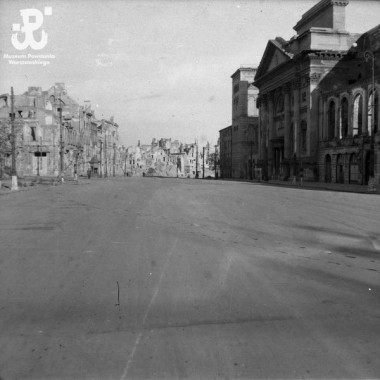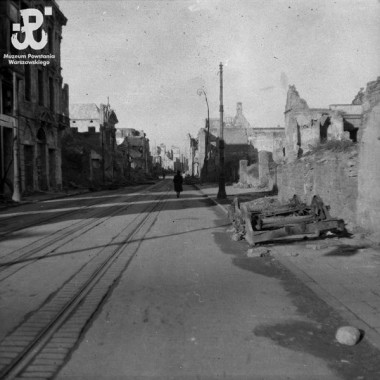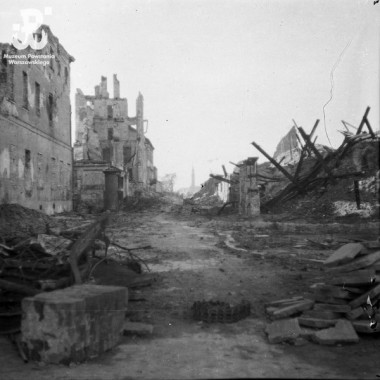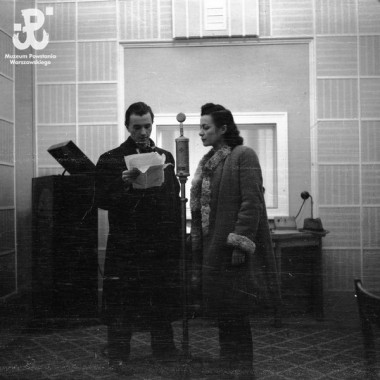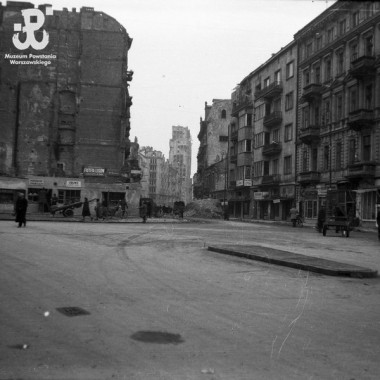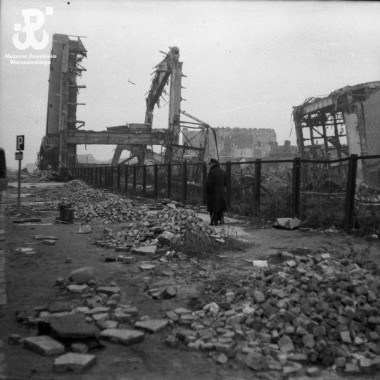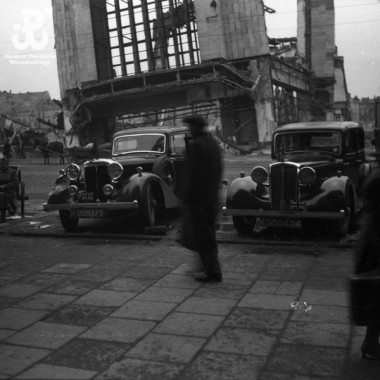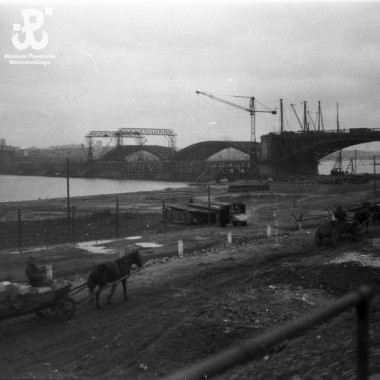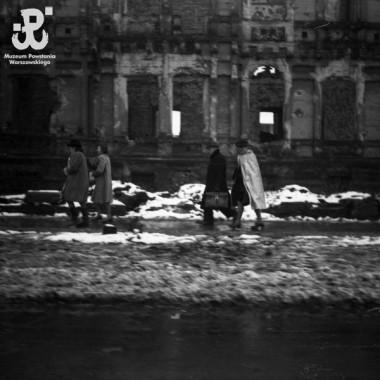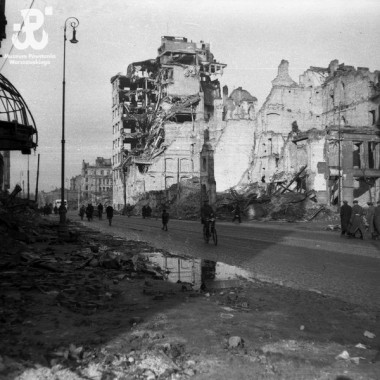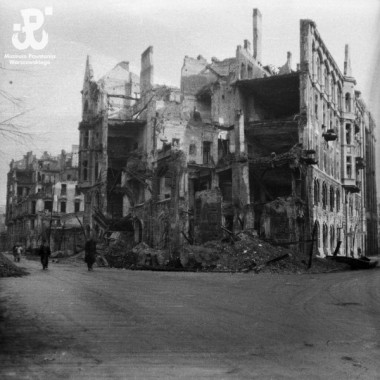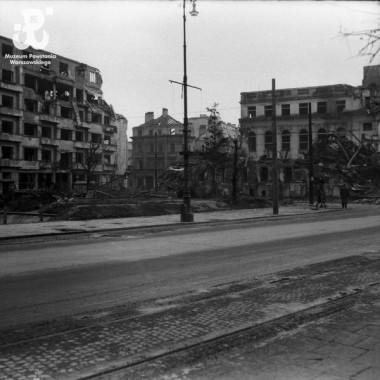Edward Dziewoński was born on 16 December 1916 in Moscow. Before the outbreak of the war, he studied acting at the State Institute for Theatre Arts in Warsaw, but he received his diploma only in 1945. He took part in various Home Army activities during the occupation, although he was never sworn in. He worked as a translator and construction manager for various construction and chemical firms, including Damięcki-Holtorp. The outbreak of the Uprising caught him in the vicinity of Końskie in the Provinve of Świętokrzyskie, where he had been sent in late July to get building materials. After the war, Dziewoński took to the stage with Syrena Theatre in Łódź. Upon returning to Warsaw, he acted in theatres such as the Ateneum (co-founded before the war by Edward’s father, Janusz Dziewoński), Syrena, Wspołczesny, Komedia, and Kwadrat, which he started himself. He appeared in several films (including Edward Munk’s Eroica), and in more than 70 theater pieces and 100 television productions, many of which he also directed. He was one of the main actors in Kabaret Starszych Panów (”Elderly Gentlemen’s Cabaret”), a TV show that ran between 1958 and 1966. He appeared in the Wagabunda and Szpak Cabarets, as well as Dudek, which he founded himself. He died on 17 August 2002 in Warsaw.
Edward Dziewoński’s photographs were taken in the second half of the 1940s during a visit to Warsaw with the Syrena Theatre. They show Warsaw largely destroyed, but already at the stage of clean-up and reconstruction. The skillfully framed and excellently preserved negatives show, among other things, the construction of the Śląsko-Dąbrowski Bridge and the East-West route (Trasa W-Z). Actress Alina Janowska, a dispatch runner in the "Kiliński" Battalion during the Rising, posed for some of Dziewoński's photos.





